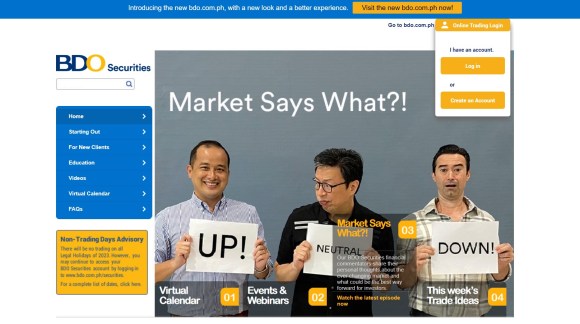Investing in the stock market and other financial instruments can be a rewarding and fulfilling in your finances.
Whether you are a beginner looking to dip your toes into the world of investing or a seasoned investor seeking a reliable brokerage partner, First Metro Securities offers a comprehensive suite of services and investment options to suit your needs. As one of the leading brokerage firms in the Philippines, First Metro Securities provides a seamless and user-friendly platform for individuals to start their investment journey.
How to Open First Metro Account

1. Go to the First Metro Securities website.
2. Choose “Open an Account” and it will go to the registration page. If you already have a Metrobank account it would easier to open and fund for First Metro Securities.
3. Fill out the online application form with the necessary information. This typically includes personal details such as your name, contact information, and identification details.
4. Prepare the required documents to complete the account opening process. This usually includes a valid government-issued ID, proof of billing or residence, and a Tax Identification Number (TIN). Ensure that your documents are valid and up to date.

5. Once you have filled out the online application form and prepared the required documents, submit your application online.
6. After submitting your application, First Metro Securities will review your information and documents for verification. This process may take a few business days. You may receive email updates regarding the status of your application.
7. Once your account is approved, you will receive instructions on how to fund your First Metro account. Follow the provided instructions to transfer funds from your bank account to your First Metro Securities account.
8. With your First Metro account funded, you can now start exploring the investment options available to you.
Opening a First Metro account allows you to take advantage of the expertise and resources provided by one of the leading brokerage firms in the Philippines. You can navigate the complexities of the investment landscape with confidence.
Remember to conduct thorough research, seek professional advice if needed, and make informed investment decisions based on your financial goals and risk tolerance.


















